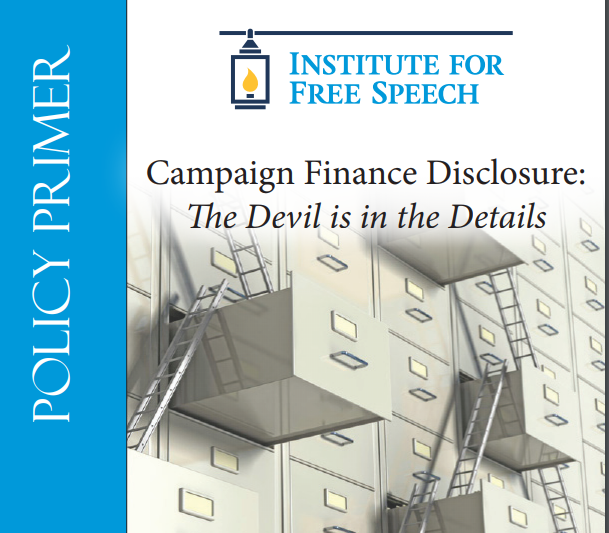As this Policy Primer on campaign finance disclosure explains, although advocates for greater regulation of political speech claim that there are large amounts of undisclosed money in politics, in fact, all spending that calls for the election or defeat of candidates is already disclosed, as is all spending and all but the smallest donations to political candidates, parties, and PACs (political action committees). Indeed, there is more disclosure across the country currently than at any time in history. At the same time, a growing academic literature has found that there are significant costs to disclosure, notably the suppression of smaller donations, and that many of the claimed benefits of disclosure are negligible or nonexistent.
While many pro-regulation advocates tout the benefits of “transparency,” disclosure requirements harm First Amendment rights to freedom of speech and association. For one, they impose significant compliance costs on affected candidates and groups that disproportionately burden volunteer-run and low-budget campaigns, slanting the political landscape in favor of large organizations and incumbents. Furthermore, requiring such groups to disclose private donor information creates a risk of harassment to donors, especially those who give to controversial candidates. This risk in turn discourages many from contributing at all.
When considering disclosure legislation, policymakers should: (1) incorporate reasonable monetary thresholds at which registration and reporting is required; (2) incorporate a major purpose test to determine reporting requirements; (3) not require disclosure of unnecessary and immaterial identifying information about donors; (4) allow reasonable time for groups to file any required reports; and (5) not require citizens to report their own activity.
In this way citizen rights will be protected while making the disclosure regime more efficient, and ensuring that it does not slant the political playing field.
For an in-depth explanation of this complex and oft-mischaracterized issue, please read the Institute for Free Speech’s Policy Primer on disclosure here.
https://www.ifs.org/wp-content/uploads/2013/12/2014-08-19_IFS-Policy-Primer_Disclosure.pdf














